
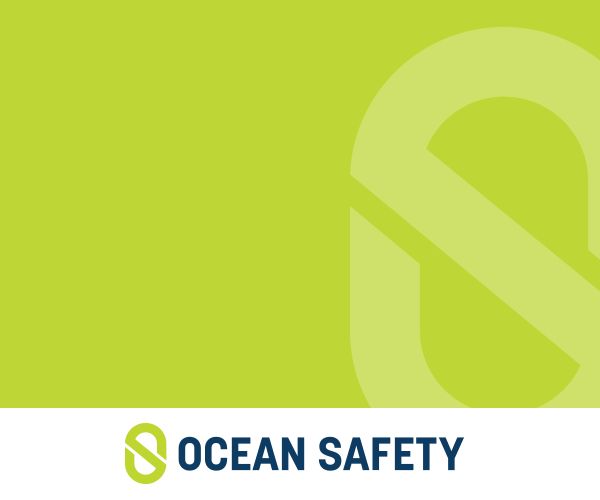



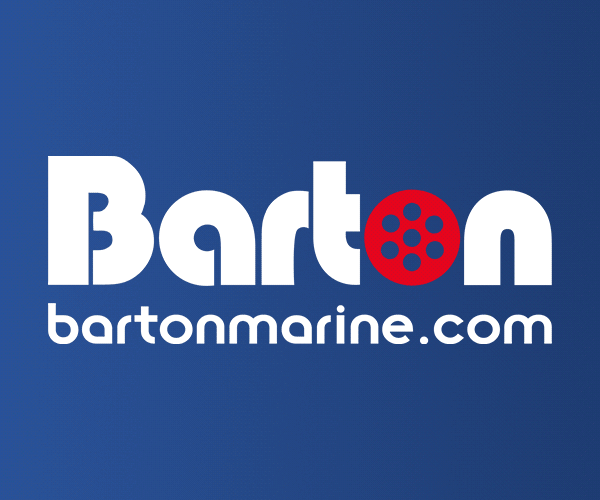

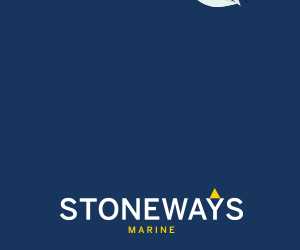
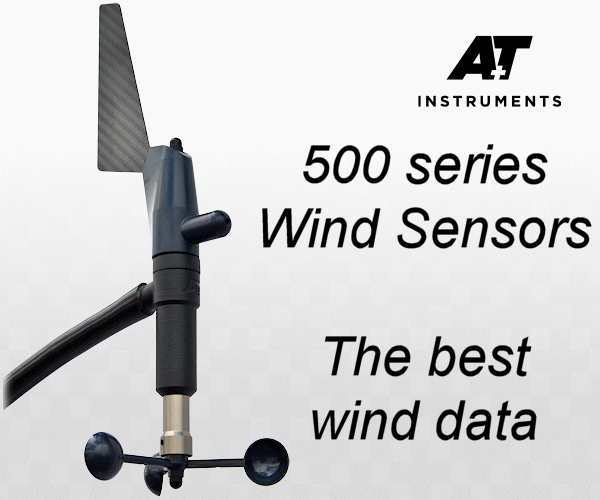



| Rossiter Pintail Mortagne sur Gironde, near Bordeaux |
 |
| Laser 140101 Tynemouth |
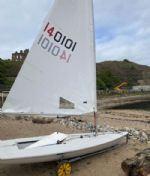 |
| Laser 28 - Excellent example of this great design Hamble le rice |
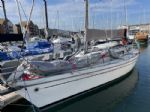 |
List classes of boat for sale |
Upwind/downwind right of way |
Post Reply 
|
Page <1234 8> |
| Author | |
Scooby_simon 
Really should get out more 
Joined: 02 Apr 04 Location: United Kingdom Online Status: Offline Posts: 2415 |
 Post Options Post Options
 Quote Quote  Reply Reply
 Topic: Upwind/downwind right of way Topic: Upwind/downwind right of wayPosted: 21 Sep 08 at 8:48pm |
|
Gordon, I totally agree with the rules and cases you quote above. BUT, as you state in 3 above "She has an obligation not to alter course without giving keep clear boat room to do so"; thus a laser can keep clear more quickly (as it is more manoverable) than a 100 foot boat, or a 49er. SO; I would argue that a laser needs LESS time to react to a change of course, and so the ROW boat can alter course LATER then approaching a LASER than when APPROACHING a 49 "fully locked in" that is the burdend boat. I believe that the "without giving keep clear boat room to do so" is CRITICAL - NOTE this is ROOM; so a small boat needs less ROOM to keep clear as they are smaller and can tack or gybe quicker, BUT as they (may) move slower, then they cannot move "away from the bit of water" as quickly. I also do agree with you that you cannot HUNT someone without risking a Rule 2; and also a boat sailing down wind needs to be aware of the abilities of the keep clear boats. What is defined as "without giving keep clear boat room to do so" is down to a trip to a protest room. |
|
|
Wanna learn to Ski - PM me..
|
|
 |
|
gordon 
Really should get out more 
Joined: 07 Sep 04 Online Status: Offline Posts: 1037 |
 Post Options Post Options
 Quote Quote  Reply Reply
 Posted: 21 Sep 08 at 8:26pm Posted: 21 Sep 08 at 8:26pm |
|
1. Port tack boat must keep clear, but if the starboard tack boat makes a course change for any reason she must leave port tack boat room to keep clear. The rules do not differenciate between different types of boat, nor the fact that some boats can only sail downwind in a narrow band of angles, which change according to wind speed. If a boat has to bear away in a gust to avoid a capsize that makes no difference to the rule situation. It may be that in some situations certain boats are not manoeuvrable enough to meet their obligations under the rules. In such a case common sense, and the rules, would be for such boats to carry less sail. The rules do not give a boat any right to carry full sail at any time. 2. Deliberately "screwing someone elses race up" would be dealt with under rule 2, if you can prove it! 3. Hailing does not oblige ROW boat to hold her course. She has an obligation not to alter course without giving keep clear boat room to do so, as always. However, if a Jury finds that a ROW boat hails to allow a keep clear boat to cross then deliberately alters course so as to prevent her keeping clear this would probably be seen as a Rule 2 infringement 3. In the 1929 rules all boats not close hauled kept clear, whatever tack they were on, of close hauled boats! Memories of this may linger on. 4. Case 87 establishes that a ROW boat need not anticipate that the other boat will not keep clear, Case 92 establishes that the keep clear boat need only react to what the ROW boat is doing at the time, not what they might do subsequently. In other words a ROW boat need only take avoiding action only when it become obvious that the other boat will not keep clear. They do not have to anticipate that the keep clear boat is "locked in" and sailng in a perilous balance on the verge of capsize. ROW boat can assume that other boat is being sailed in a seamanlike manner and will keep clear. A Jury will ask when did it become apparent that the keep clear was not going to keep clear, and did the ROW boat take prompt action to avoid or diminish the impact of the colision. Similarily, if a ROW boat changes course the jury will ask if when doing so the keep clear boat was given room to keep clear. It is assumed that time is given for an averagely competent crew, sailing in a seamanlike manner, to manoeuvre. If a boat was to say that she was unable to manoeuvre because any change of course would result in a capsize, a Jury might well consider that she was not being sailed in a seamanlike manner. Gordon
|
|
|
Gordon
|
|
 |
|
Scooby_simon 
Really should get out more 
Joined: 02 Apr 04 Location: United Kingdom Online Status: Offline Posts: 2415 |
 Post Options Post Options
 Quote Quote  Reply Reply
 Posted: 21 Sep 08 at 11:44am Posted: 21 Sep 08 at 11:44am |
|
Gordon, I firmly believe there is a much more important issue underlying ALL this. Some people do not undertand that a boat going down wind has Can be on Stbd and have the rights. Second question. How long do you feel a burdend boat has to take avoiding action. Similar, how late can a starboard boat continue to change course? I'd suggest a laser can tack and gybe VERY quickly and so remains burdened later in this type of issue. 18foot skiffs take longer to tack and gybe and so when the burdened boat, they can expect longer to take action (and thus expect the R-O-W boat to hold course from an earlier point in the developing situation. We've seen lasers at the ollies chasing each others tails, they are reacting on very short time scales(a second or so); I don;t suggest we would expect 49ers to react so quickly. What's your view? |
|
|
Wanna learn to Ski - PM me..
|
|
 |
|
Skiffybob 
Really should get out more 

Joined: 04 Dec 06 Location: United Kingdom Online Status: Offline Posts: 842 |
 Post Options Post Options
 Quote Quote  Reply Reply
 Posted: 21 Sep 08 at 11:40am Posted: 21 Sep 08 at 11:40am |
|
I agree Gordon. It is the responsibility of the downwind boat to keep clear (unless of course the downwind boat is on Starboard and the upwind boat is on port, which is often the case, and if fact was the case that Iain was referring to, that of port tack boats going upwind and not keeping clear of starboard boarts going downwind). I don't think it implies that the boat is not in control, it just implies that they are less maouverable, and if the consequence is that they are highly likely to p*ss it in on top of you, then surely it's better to avoid the situation altogether. All we're suggesting here is that people use a bit of common and try to avoid creating these situations if they can, as it's of no benefit to anyone. Even if you're all racing against each other, if one boat is that far behind that it's on a different leg of the course, then don't deliberately try to screw the other guy's race up. Just tack away early and let him go, or at least make it clear which way you intend to go. You're also right that the ROW boat has no obligation to call, but am I righ in saying that if he does, then from that moment he has to hold his course? Edited by Skiffybob |
|
 |
|
gordon 
Really should get out more 
Joined: 07 Sep 04 Online Status: Offline Posts: 1037 |
 Post Options Post Options
 Quote Quote  Reply Reply
 Posted: 21 Sep 08 at 10:53am Posted: 21 Sep 08 at 10:53am |
|
Surely, a boat that is "locked in" is by definition a boat that has limited control of both course and speed. However this does not exonerate her in any way from any obligation to keep clear, or when right of way boat not to change course without allowing a keep clear boat room to keep clear. A right of way boat beating to windward might want to make a minor alteration of course to allow a keep clear boat through - however they have a right to expect that a boat sailing downwind can alter course to avoid them. IF (and I am not sure that they are ) skiff sailors are saying that they cannot alter course to keep clear then that is their problem, which they will have to solve by developing new techniques or equipment.
One other point - it is not the ROW that hails, she has no obligation to do so - the keep clear boat has an absolute obligation to keep a look out. Is it possible that some modern designs do not allow crews to maintain a look out to windward?
Gordon |
|
|
Gordon
|
|
 |
|
Skiffybob 
Really should get out more 

Joined: 04 Dec 06 Location: United Kingdom Online Status: Offline Posts: 842 |
 Post Options Post Options
 Quote Quote  Reply Reply
 Posted: 21 Sep 08 at 10:33am Posted: 21 Sep 08 at 10:33am |
|
Yet again the forumites take things out of context. I don't think anyone's suggesting that everyone else on the water should keep clear, and I don't agree with the view that skiffs spend a lot of their time "out of control". I think where Iain started from is a concept that people use common sense. A boat going upwind is move able to change course than a boat going downwind. Now, when you have a twin-wire boat with a big kite, where you have to set the boat up and then lock yourself in, makes it much more difficult to make a sudden gybe than it does for a similar boat going upwind. The reality of it is that if you call late and force one of these boats to make a sudden gybe, there's a good chance that not only will you ruin their race, but you'll probably ruin your own when they capsize right on top of you (best case), of stick a big hole in your boat (or your head, worst case). So all we're saying here is that if you see someone powering downwind with both crew on the wire and locked-in, use a bit of common sense and let them go. |
|
 |
|
gordon 
Really should get out more 
Joined: 07 Sep 04 Online Status: Offline Posts: 1037 |
 Post Options Post Options
 Quote Quote  Reply Reply
 Posted: 21 Sep 08 at 10:13am Posted: 21 Sep 08 at 10:13am |
|
Consider Case 99 "the fact that a boat required to keep clear is out of controldoes not entitle her to exoneration for breaking a rule of Part 2" And also case 60 "When a right of way boat changes course in such a way that a keep clear boat, despite having taken avoiding action promptly, cannot keep clear in a seamanlike way, the right of way boat breaks rule 16.1." Many skiff classes seem to have very limited control (if any) of their course and speed when sailing downwind This canot be used as an excuse. Similarily, the fact that skiffs may have to make sudden and unpredictable course changes in order to avoid a capsize in no way exonerates them from givng other boats room to keep clear! Maybe skiffs shouild sail around the course preceeded by someone waving a red flag!
Gordon |
|
|
Gordon
|
|
 |
|
markp 
Groupie 
Joined: 14 Jun 06 Location: Mumbles Y.C Online Status: Offline Posts: 85 |
 Post Options Post Options
 Quote Quote  Reply Reply
 Posted: 21 Sep 08 at 12:09am Posted: 21 Sep 08 at 12:09am |
Common sense and ISAF Isn't that a contradiction! I agree that the current rules in this regard could be amended or failing this a good chat with the person responsible for drafting the SI's for the Event or Club series could help reduce the risks. |
|
|
MP*MULTIHULLS
The UK F16 Dealer http://www.mp-multihulls.co.uk |
|
 |
|
Skiffybob 
Really should get out more 

Joined: 04 Dec 06 Location: United Kingdom Online Status: Offline Posts: 842 |
 Post Options Post Options
 Quote Quote  Reply Reply
 Posted: 08 Sep 08 at 3:52pm Posted: 08 Sep 08 at 3:52pm |
|
Quite right, and if you're passing one when you're going upwind and they're coming downwind, make it obvious which side of them you're going to go as early as you can, and stick to it. Which brings us nicely back to the origin of the thread. You see it's all just common sense really. |
|
 |
|
Fraggle 
Far too distracted from work 
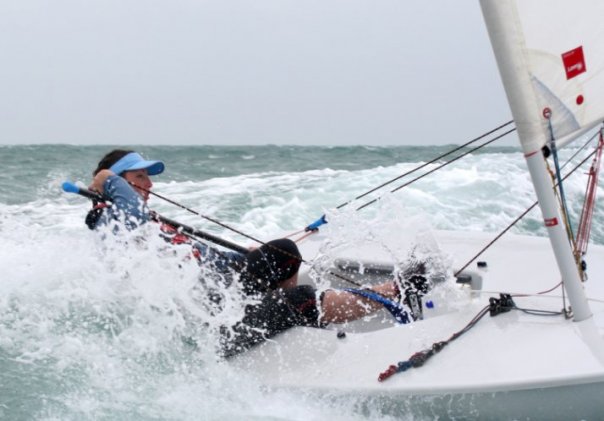
Joined: 28 Feb 07 Location: United Kingdom Online Status: Offline Posts: 220 |
 Post Options Post Options
 Quote Quote  Reply Reply
 Posted: 08 Sep 08 at 3:24pm Posted: 08 Sep 08 at 3:24pm |
|
I club race with all sorts on the water ranging from cats, 49er, down to laser 4.7's/fevas. Although we are on different courses we do meet occasionally and all have to go through the line each lap. In something as slow as a laser radial its very hard to judge how quickly some of the much faster boats are approaching. I've spoken to 49er and tornado helms and they have basically said the best thing is for the slow boat to hold course as the faster boat has planned further ahead and planned how to deal with you. The worst thing I can do in my radial is tack to avoid them at the last minute. They'll be calling early if they do need me to avoid. This doesn't mean I don't keep an eye out for them though.
|
|
 |
|
Post Reply 
|
Page <1234 8> |
| Forum Jump | Forum Permissions  You cannot post new topics in this forum You cannot reply to topics in this forum You cannot delete your posts in this forum You cannot edit your posts in this forum You cannot create polls in this forum You cannot vote in polls in this forum |
Copyright ©2001-2010 Web Wiz
Change your personal settings, or read our privacy policy












 Printable Version
Printable Version Delicious
Delicious Digg
Digg Facebook
Facebook Furl
Furl Google
Google MySpace
MySpace Newsvine
Newsvine reddit
reddit StumbleUpon
StumbleUpon Twitter
Twitter Windows Live
Windows Live Yahoo Bookmarks
Yahoo Bookmarks Topic Options
Topic Options